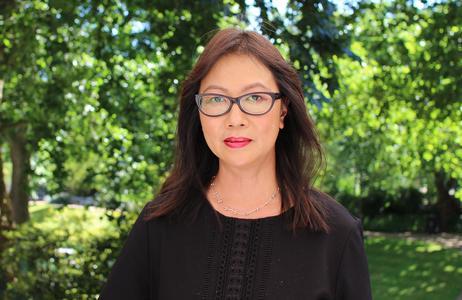Grace Ong

Tell us about your background and why you decided to become a barrister.
My parents, who were state school teachers spent their savings to send me to the UK to study law in 1981. I used to watch 'Crown Court' on television and really wanted to make criminal law and advocacy my speciality. I was further inspired by my criminal law tutor at QMC, and enjoyed analysing cases.
Did you face any obstacles along your journey to becoming a barrister and how did you overcome them? Have any of them persisted since becoming a barrister?
I had enormous imposter syndrome. Initially I spoke with a Singaporean accent, and people said they did not understand me. I was the only Chinese South East Asian student wanting to be a criminal barrister in my year, and my Singaporean friends thought I was mad not to get my degree and return to Singapore. My parents had little extra money to spend on me, and I faced my first Christmas watching my friends at Halls go home - luckily I had a good friend who invited me to her farm for Christmas, and looked after me. I still feel like an outsider.
What opportunities, support and encouragement did you receive along your journey to becoming a barrister?
I had a wonderful sponsor/mentor at Lincoln's Inn, who taught me all about dining customs and dined with me at the Inn. I was meant to be his pupil but he became a judge a month before I was called. Apart from him, I was pretty much on my own.
What is the most rewarding thing about being a barrister; has life at the Bar met your expectations?
Knowing that I have done a good speech in court, and that what I did for a lay or professional client made a real difference to their life/case. There is also a real satisfaction in winning the judge round to a point of law. There is no buzz better than hearing the jury return the verdict I was hoping for; that is a real high.
How do you use your experience of coming to the Bar from a non-traditional background, to support those seeking to do the same, and/or why is it important for barristers to contribute in this way?
I am an elected member of the Bar Council, I sit on its Equality, Diversity and Social Mobility Committee. I am also a member of the CBA executive committee and co-ordinate its social mobility committee. I regularly mentor junior tenants and pupils in and out of chambers, and I am involved with the Social Mobility Foundation and take in work experience students. I am involved in Lincolns Inn's education and am an advocacy trainer. I am a Bar Council e-mentor and have spoken about the benefits of mentoring. I am my chambers' Equality and Diversity officer and have been pro-active in recruiting an anti-harassment officer.
What are the challenges facing today's aspiring barristers, and how could they be addressed?
It is easier in that there is a greater certainty of a tenancy following pupillage. When I came to the Bar in 1985 I spent a long time trying to get my first tenancy. I also incurred enormous debts on overdrafts financing my own pupillage. It is more difficult in its enormous cost, and the difficulty of getting a criminal pupillage today is well documented. Criminal fees have never made a great living, but at least you were able to make enough to buy a house eventually. Now, short of having a private income, there is no incentive to stay at the Criminal Bar. I want criminal justice to resume its importance to the government. Successive governments have worked to undermine what we do, which is vital. I believe that the Bar can change by recognising the important work that criminal barristers do, and by encouraging more aspiring barristers from non-traditional backgrounds to come to the Bar, and to feel welcome when they enter it.
What advice would you give someone from a non-traditional background, seeking to succeed at the Bar?
Have a really thick skin, thicker than that of a rhinoceros. Always practise your speeches in front of the mirror or a friend. Never feel that you are not good enough to be where you are. Take advantage of whatever mentoring opportunities that are available, and actively seek out an individual or more than one person who can help you along the way, and to be able to answer questions you may be afraid to ask.